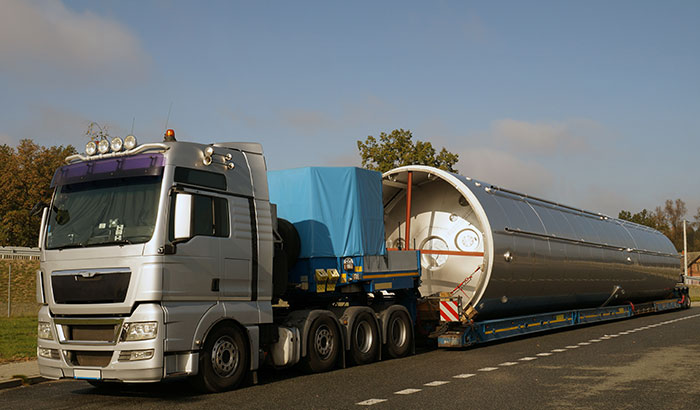Here’s What Not To Do As a Fleet Manager
Uncategorized
Apr 19, 2023

Being a fleet manager is one of the most rewarding and interesting careers out there; however, that does not mean it’s an easy one. Like with any other job, there are challenges you’ll face daily.
Managing a truck fleet comes with countless responsibilities, and the person managing it must have a lengthy list of specific talents, abilities, and experience to be successful. Fleet management responsibilities include excellent communication, administrative abilities, technical knowledge, negotiation skills, perseverance, and more!
Like all other careers, truck fleet management is met with difficulties, challenges, and roadblocks (literal and figurative blocks!) that must be faced head-on. When fleet managers miss the mark, the entire fleet process and operation can become derailed. There are many mistakes that a fleet manager must avoid making. So, today we have gathered a list of what not to do as a fleet manager.
Keep reading to learn what to do and what not to do as a fleet manager.
Fleet Manager Responsibilities
While a truck driver is the one operating the truck and making the deliveries, there is a lot that goes on behind the scenes. Fleet managers oversee complex fleet operations daily, and their role comes with many responsibilities. Fleet managers are the logistic specialists of the team and must be an expert in the transportation industry. A fleet manager must handle everything – large and small – when it comes to company vehicles and the team of drivers. The duties of a fleet manager may vary from one to the next; however, generally speaking, fleet manager responsibilities include:- Correctly record fleet information.
- Examine and analyze recorded data.
- Select the best vehicles.
- Manages truck maintenance schedules.
- Recruit responsible and reliable drivers.
- Maintain and manage a budget.
- Assign trucks to drivers.
- Handle drivers’ schedules.
- Create, implement, and manage policies for their fleet.
- Manage accident reports.
- Establish situational practices and procedures for potential issues.
- Handle escalated customer service issues.
- Use GPS systems to locate trucks.
- Find ways to reduce costs while increasing profits.
- Comply with all of the U.S. Department of Transportation laws and regulations.
- Develop strategies to improve fuel efficiency.
- and more!
5 Mistakes a Fleet Manager Should Avoid Making
If you are in a fleet management role, here are a few things you should not do:- Avoid Getting Too Comfortable — The more time you spend in any occupational position, the easier it is to get comfortable in the role. At some point, the fleet may start to run relatively smoothly, and the operation, procedures, and policies are running themselves. It is easy for fleet managers to set the theoretical cruise control and coast. Getting too comfortable isn’t a good idea. Changes constantly occur in the fleet world; sitting back and watching is not an option. Fuel prices rise and fall; vehicle resale values fluctuate; laws, rules, and regulations always change; employee turnovers occur, and more. If you aren’t prepared, you could be left scrambling in these situations; effective resolutions and positive fixes come with a manager who stays on top of everything. Robert Zell, a highly successful businessman and company founder, said, “Complacency is the enemy of excellence.” Managers that thrive never assume anything, including that the fleet is under control, that all cost-savings are met, or anything else. Staying on top of industry news, implementing better procedures and processes, and a willingness to grow and learn is key.
- Don’t Forget to Stay Current — If you think the tire on a semi going 65 mph spins quickly, look at how quickly things can change in the truck fleet industry. If managers are not paying attention, they will get left behind. Staying informed and in the know is crucial to being a successful fleet manager. Staying informed means knowing your fleet numbers, cost, and figures. It means knowing what suppliers are selling, what you are doing, and what your competitors are doing. It means being aware of issues and having solutions before a supervisor does. It means staying in the loop on industry trends and news. Thankfully, staying in the know is easier than ever, thanks to the internet and networking with industry peers. Just about every issue has been experienced by someone else, and their willingness to share ideas, solutions, and advice is just a click or phone call away.
- Never Depend Too Heavily on Suppliers — A major advantage of fleet suppliers is that they can provide a service, product, or program for all things “fleet management.” Between maintenance, leasing, fuel, and more, there is a program; you need it, and it exists! It just makes sense to use these suppliers. However, relying too heavily on these suppliers could be harmful to your position as a decision maker. It’s not a good idea to turn over an entire fleet to suppliers since this could turn the fleet manager into a middleman, which isn’t at all what you want for your job. You always want to be managing in your role, not just coordinating how things are going. Outsourcing can be a smart move a fleet manager makes; however, doing it strategically and based on necessity is key. This really helps with job security. At the same time, you don’t want to make your role indispensable. This means ensuring you are hiring top-tier talent, keeping your team informed, and cross-training them. Then, your superiors will see your leadership potential and not assume that you need to only stay in your current role. They’ll trust you to take on more responsibility and train your replacement someday.
- Avoid a Lack of Communication — Doing your job is just that – it’s your job. As nice as it would be to continually receive praise for your accomplishments, this isn’t always realistic because your higher-ups are very busy. Oftentimes, there’s a silent gratitude that isn’t always communicated but is ever-present if you’re doing a good job. So, while a gold star might not come every day, don’t think your higher-ups aren’t pleased just because they haven’t said anything. The best way to keep regular communication with senior management is to update them. Regularly fill them in on the important details. Don’t wait for them to ask for it; pass it along so they continually receive updates and know what’s going on with your fleet. With all a fleet manager is tasked with doing on a daily basis, you should have no issues finding pertinent and important information to present in a concise manner to those whom you report that (one) brings them up to speed and (two) showcases positive efforts and proof of success. Focus on results, not process, whenever possible. Fleet managers that offer simple and focused information via straightforward communication will show (in addition to telling) their management what is going on, keeping them apprised of everything they need to know at a glance.
- Do Not Forget Your Crew Members Are People Too — You, a fleet manager, are human. It is important to remember that your fleet members are people, too. They have lives, feelings, and problems of their own. Make sure to listen to what they have to say. Hear their concerns and listen to their ideas. Your drivers are in the trenches and will have great insight that is worth considering. Unsuccessful fleet managers operate as machines or robots, with little to no care or concern for their team. As a fleet manager, it is important to encourage balance, health, and overall well-being. Be graceful and lenient where possible while expecting respect, honesty, and hard work.
5 Traits of a Good Fleet Manager
Now that you know what not to do, here are a few things you can do to ensure you’re a great fleet manager:- Always Prioritize the Team’s Safety — Fleet managers must put the safety of their team above all else. Staying on top of truck maintenance and paying attention to the crew’s mental and physical health (stress and fatigue levels included) can help prevent accidents. Managers should not wait for a close call or accident to occur before prioritizing team wellness. Fatigue and crash risk are directly related, so paying close attention to this while creating schedules is crucial. Even the slightest bit of drowsiness can cause an accident. Fleet managers must be proactive in many aspects of their job, especially safety.
- Lighten the Load When You Can — Vehicle maintenance can be challenging and tedious, which is why great fleet managers make scheduling and reporting maintenance as easy as possible. The good news is today’s advanced and time-saving technology allows truck drivers to digitally perform routine truck inspections, a much faster process than a manual checklist. This easy investment will save your drivers countless hours on the road and simplify the process. Automating this process means managers and their drivers have less to worry about, thus lightening their figurative load. Moreover, investing in a digital inspection process will help ensure inspections and checks are regularly occurring, resulting in a safer and well-maintained fleet.
- Truly Listen to the Team — The best fleet manager will consider them to be part of the crew, not someone who is in a higher-up position. They all work collaboratively and mentor one another. A great manager will create a space where open and honest communication can happen and will listen to their drivers’ feedback, both positive and negative. Managers should strive to create an environment where their team knows they can come to the manager when a problem arises, whether it is an issue with a vehicle, occupational stress, or something personal. Supporting the drivers is a huge part of being a fleet manager. The best managers are those who are understanding and empathetic whenever possible.
- Make Expectations Crystal Clear — Being empathetic does not mean being a pushover; there is still a job to do and a delivery to make. Fleet managers need to make their expectations clear. A lack of clarity leads to confusion, leading to a less efficient and productive workplace. No employee enjoys the feeling of being unsure of their responsibilities, and when expectations are not clear, drivers cannot put their focus on executing their jobs. Confusion is scary and mentally exhausting, and any good fleet manager wants their drivers to be as focused and alert as possible. Over-communicating is best to ensure the driving team knows what they are doing.
- Promote Positive Mental Health — It is no secret that life behind the wheel can be lonely and negatively affect a driver’s mental health and overall well-being. Great fleet managers should check in with their team regularly, promote balance, and always put the team’s mental health high on their priority list. Here are a few ways to boost the team’s morale while they are on the road:
- Encourage team interaction
- Communicate with loved ones
- Watch TV and enjoy other forms of entertainment


